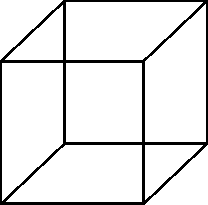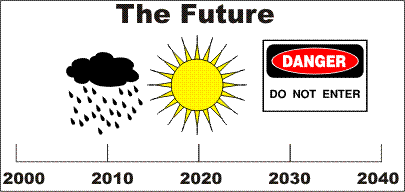
Originally Posted by
John J. Xenakis
The movie is based on a series of short stories that Asimov wrote in the 1940s.
I just picked up the book at the library. I haven't read it since high school, and I doubt the movie follows the book much if at all. I vaguely remember the premise of the book as having the robots independently develop a "Zeroth law", whereby a robot could not injure
humanity or allow it to come to harm; as such, some humans would need to be harmed to protect "humanity".

Originally Posted by
John J. Xenakis
The super-intelligent robots of the future will first be used for war, so nothing like Asimov's Three Laws will ever be implemented in any meaningful way.
Certainly autonomous robots will be used for war -- they already are -- but it is unlikely such robots would resemble bipedal humanoids. There are zero tactical advantages to doing so. The most efficient design would likely be akin to a giant
cockroach, since insects apparently maintain their balance through purely mechanical means rather than through sophisticated nervous systems.
That said, it's all the
more likely that the products of a "U.S. Robots & Mechanical Men" company will have the "Three Laws" built in, since ironclad safeguards would need to be provided to overcome potential customers' visceral fear of robots (having first encountered them in wartime.)
It also justifies the special-effects conceit of having the robots appear not-quite-human, with their Mr. Potato Head plastic faces: humans react most hostilely to creatures that are not
quite human (zombies, vampires, demons, etc.) This is known in the literature as the
Uncanny Valley.

Originally Posted by
John J. Xenakis
(*) The fact that the movie takes place in 2035 supports the view that the first super-intelligent computers will be available in the 2020s, and that the Singularity will occur around 2030. (Of course, the movie won't mention the Singularity.)
No, the movie probably won't, but the books actually go into some depth on this subject. As I mentioned, with the Three (four) Laws programmed in, the robots actually take pretty good care of us. :wink:

Originally Posted by
John J. Xenakis
(*) Once Will Smith gets the girl, the movie won't mention the fact that trying to beat the robots is a lost cause, since robots will become increasingly intelligent each year, while humans will remain the same (not counting the human beings who allow themselves to be turned into robots).
As I've mentioned repeatedly in this thread, "humans turning themselves into robots" is exactly what I expect to see happen, and sooner rather than later. Given
current technology, I estimate that we are only a few years away from crossing a very important psychological threshold -- implanting electronic devices by choice (rather than medical necessity.) The first implants will be rudimentary cell phones; but the leap to
Speaker For The Dead's subvocalization sensor is not too far -- NASA is
already working on it.
Humans won't
become robots, but they will
merge with them.
Originally Posted by Brian Rush






